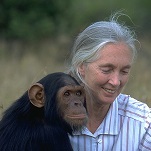 A coalition of organisations has launched opposition to the granting of patents on genetically modified chimpanzees on the grounds that the apes require a special level of protection.
A coalition of organisations has launched opposition to the granting of patents on genetically modified chimpanzees on the grounds that the apes require a special level of protection.
Since 1992, the European Patent Office has granted more than patents on genetically engineered animals. The patents grant the holders a monopoly on marketing the modified animals for 20 years or more. Some genetically engineered animals have been patented with a view to selling for food production in the future, but these have yet to reach the market. Others, often mice, have their DNA altered for use in medical experiments – for example to make them prone to cancer or obesity. The monopoly rights granted to the patent holder guarantee an income from marketing these animals to other companies to conduct animal experiments.
Last year the EPO granted three patents on genetically engineered chimpanzees. However, on 8 March an 'opposition' was filed by a broad coalition of organisations against a patent granted to the American company, Altor BioScience, on the grounds that the patent is unethical. The patent covers chimpanzees that have been manipulated to make their DNA similar to that of humans, and then used in pharmaceutical research.
Writing in the online newsletter Public Service Europe, the director of GeneWatch UK, Dr Helen Wallace, reported: "Opponents argue that there is no justification for these patents, which do not provide any medical benefit but simply aim to market laboratory animals. There is particular concern about genetically engineering apes for use in medical experiments and attempting to profit from their use. The process of creating genetically engineered mammals, as well as their use, is expected to cause the animals to suffer."
Primatologist Jane Goodall (pictured), who studied chimpanzees in the wild for over 50 years, said: "While on the one hand protection of great apes gets more and more support in society, on the other hand the desire of some companies to patent chimpanzees, our closest living relatives, is a step in the opposite direction. It seems to me shocking that a company should consider a great ape as a mere technical tool. If we allow that in this day and age people in the future will look back and say: how could they?"
Professor Christophe Boesch of the Wild Chimpanzee Foundation added: "We know great apes in particular not only suffer from pain and stress, but also exhibit evidence of consciousness akin to that of humans. Research into animal behaviour in species such as chimpanzees and bonobos has fostered a strongly emerging debate about whether these non-human and highly protected animals deserve to be given a legal status similar to that of humans. This debate is a strong signal that great apes must be treated with very high ethical standards. The Patent Office is violating basic ethical standards."